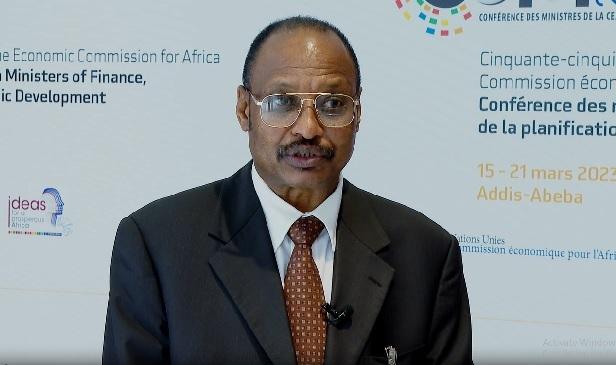Africa-Press – Ethiopia. The African continent needs value-adding productions to improve the current trade exchange and low growth, UN Economic Commission for Africa (UNECA) Macroeconomics and Governance Director Adam Elhiraika said.
The director told ENA that Africa’s growth remained very low compared to its potential and needs mainly due to its heavy dependence on primary commodities production and export.
He noted that Africa’s growth has remained very low at around 3.6 percent in 2022, down from 4.1percent in 2021, but it is expected to rise to 3.9 percent in 2023.
“Continuous heavy dependence on primary commodity production and exports is a major problem for us in Africa, because we need to add value so that we earn more from exports and also import less, because there is a lot that can be produced locally, processed, value addition are important for Africa in order to increase production, increase export, increase earnings, increase employment and reduce poverty. Only oil and minerals account for more than 50 percent of Africa’s exports and Africa’s share in global trade remains very, very low at around 2.5 percent,” Adam said.
The intra-African trade can be raised to 35 percent by 2045 from the current 17 percent if African countries effectively implemented the African Continental Free Trade Area (AfCFTA).
Yet, the countries have not made the needed investment in order to produce manufactured goods that will enhance intra-Africa export, he observed.
They need to have new macroeconomic policy frameworks that increase productivity and value addition and transformation, he recommended.
“We need to have in place industrial policies and value addition policies, local contents policies that really help us to enhance value addition and industrialization.”
Short of these policies, the director warned, “we will be talking again and again about issues of low growth and stable growth, problems of job creation and problems of poverty.”
Africa has more than 50 percent of the global poor income people with very high poverty and about 546 million people are under the poverty line. “This is huge and cannot be addressed with business as usual.”
Besides monitoring policy frameworks, production and value addition, concerted efforts to mobilize domestic resources are highly required.
“We have to depend more and more on those citizens. Yes, domestic resources account to more than 60 percent of financing needs of Africa currently, but there is huge potential to increase domestic resource mobilization.”
He further stated the need to implement AFCFTA and work together for better access to global resources.
“We also need to work together in order to have more coordinated trade policies to implement the AfCFTA and work together also to have better access to international resources.”
This will require global financial institution that gives more space, that provides more access to African countries to international financial resources at lower cost than what we have currently, he added.
For More News And Analysis About Ethiopia Follow Africa-Press






